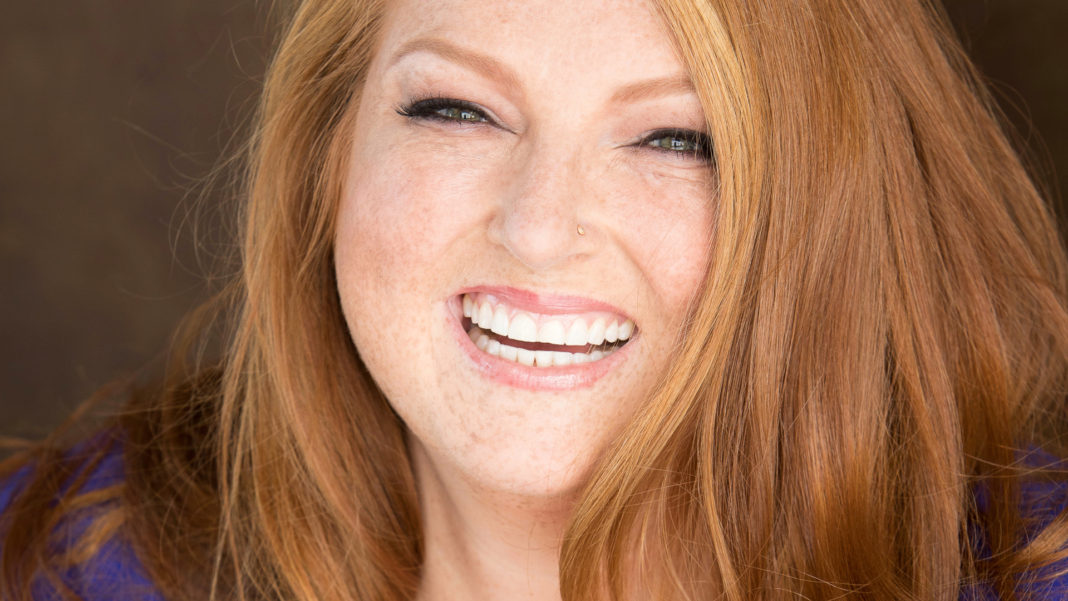When the Verdi Chorus unveils their first new program in the pandemic era on November 8th, it will be just after the 17th anniversary of when soprano Sarah Salazar decided to make singing her career. That she made it to this point is nothing short of miraculous.
“I wasn’t supposed to survive,” she tells me by phone last week. “My chances were so low that the doctors were projecting I wasn’t going to survive.”
It was 2015 and Salazar was diagnosed with a deep vein thrombosis in a vein leading to her small intestines. “When they cut it, they somehow missed a part of my intestines in the cat scan and found in an MRI that my small intestine had started dying. I underwent emergency surgery, but the infection was so bad I had gone septic. My lungs had failed. Other organs weren’t working so well.” She was put into a medically-induced coma.
During that coma her breathing was compromised and the doctors suggested a tracheotomy – a surgery that would have ended her singing career before it had fully blossomed. “My mother said ‘no,'” Salazar says. “It would have only increased the odds minimally. If I wasn’t meant to sing and share my voice, I don’t think I would have survived.”
A long journey back, one that was far more complicated than she imagined, was made shorter by her determination.
“I had to completely re-learn how to sing. I would go for 15-minute singing sessions at a time and slowly worked back up. It took me a good four months. In 2015-2016 I was able to sing the role of Donna Anna in Don Giovanni. I gave my master’s recital and did two other concerts at Cal State Northridge. I graduated in three semesters. In hindsight, I don’t think I really realized how sick I had been.”
It was in 2015 that she joined the Verdi Chorus. In the years that followed she’s sung with Pacific Opera Project, Santa Barbara Opera, Los Angeles Metropolitan Opera and more.
For Verdi Chorus’s program Amor y odio (which debuts on Sunday), Salazar and the rest of the singers will be seen and heard performing Spanish songs including zarzuelas.
“When I first met Anne Marie [Ketchum – Artistic Director of Verdi Chorus] she was putting on a Spanish program of opera music. She had me sing these songs and I was just drawn to this music. It is so beautiful and so deeply emotional.”
As was the process of filming the concert in a safe way.
“This time we’re all alone. It makes me a little sad because every concert I’ve done with this group has always been together. I have the privilege of doing a duet with Tiffany Ho and we had rehearsals and we wore masks and we were able to sing together. But when we went together to record, it was too small. She sang her part first and I had to have an earpiece in my ear and sing the duet. It didn’t feel as organic as it would have felt if we were performing live.”

Now that she’s recovered, Salazar has a few roles in mind she’d like to perform.
“I would really love to sing Tosca. I would love to have the opportunity to sing Donna Anna now with a healthy voice and a new grasp on my technique. The third role would be Vanessa from Samuel Barber’s Vanessa. She is so deeply emotional and I love that whole crazy flair she has.”
Through all the challenges she has faced, Salazar has no regrets about that decision she made seventeen years ago.
“The best thing has been being able to make such wonderful music with the people who do the productions with me and the friends I have made. Being able to be a singer, especially during this time, has been the top thing for me.
“The most difficult part has been staying positive in moments when you feel that you are not enough. So much of classical music is you always try to reach this level of perfection and this perfect product. Sometimes it can be overwhelming trying to make it what we think it should be.”
Which is when, like most of us, Salazar deals with the demons.
“Impostor syndrome,” she says. “Those things you deal with as singers. You have to realize there is always going to be somebody better. But you are the only person that is you. The world needs people who are authentically themselves. I’m the only person who is Sarah Salazar – that acts the way I do, that sounds the way I do, that sings the way I do. Someone is going to like it, someone isn’t.”
In the end, Salazar knows she’s on the right path.
“I have completely dedicated my life to making and sharing music. All this made me realize this is my God-given talent. It has completely changed me.”
Photo: Sarah Salazar (Courtesy the Verdi Chorus)













